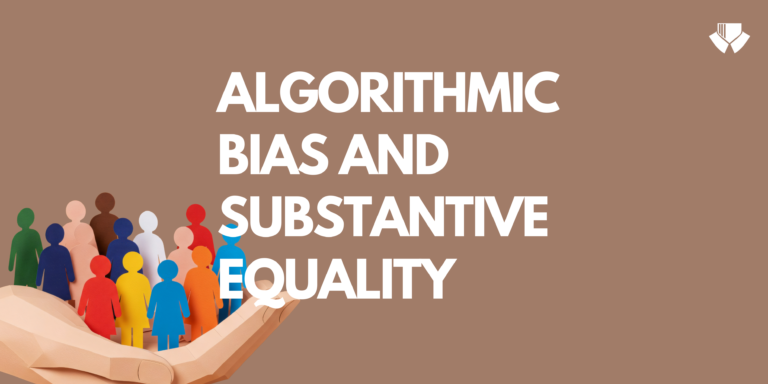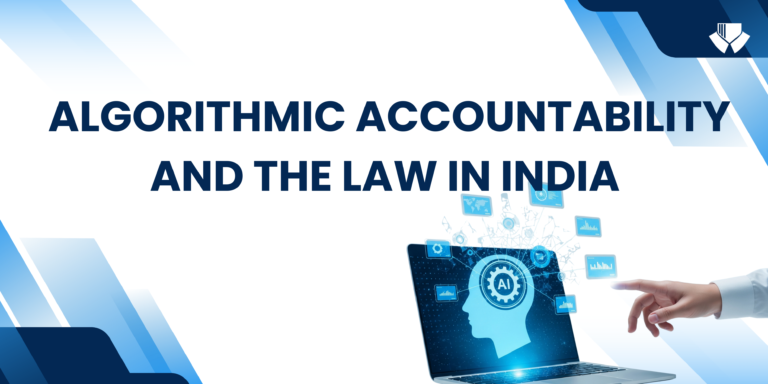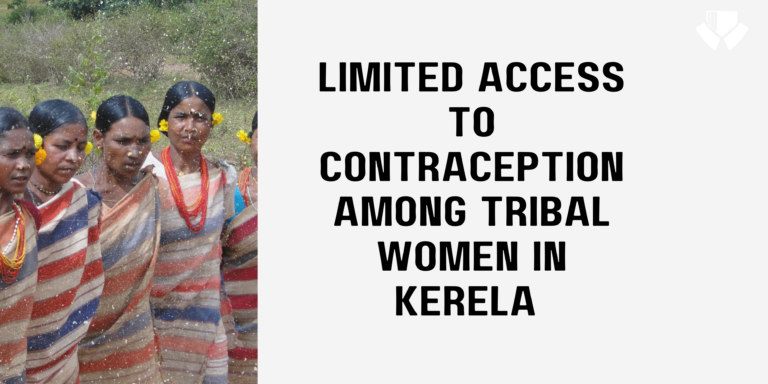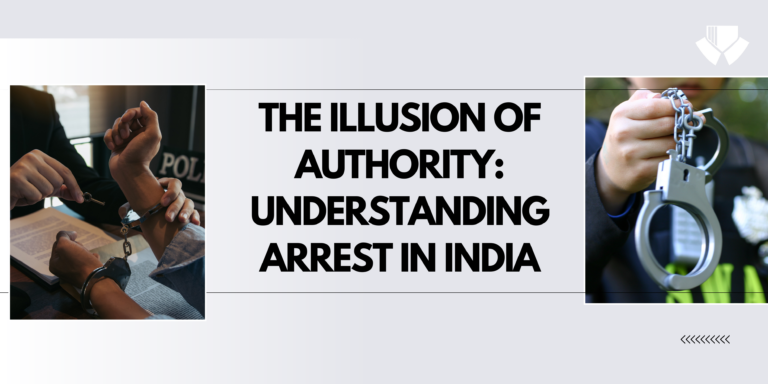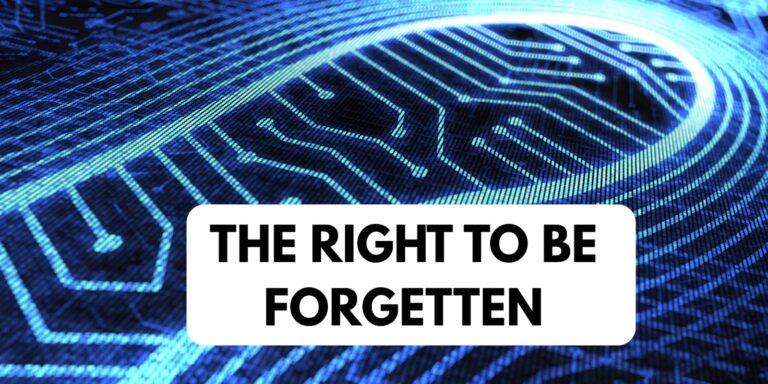This long article is written by Ravichandra Iti, a IV B.A.LL.B Student of KLE Law College Bengaluru.
Abstract
The rise of the gig economy in India has redefined traditional employment structures, creating opportunities for flexible work while also raising serious concerns about job security, wage stability, and social protection. Unlike regular employees, gig workers are classified as “independent contractors”, excluding them from conventional labour law protections related to minimum wages, health benefits, insurance, and retirement security. This legal ambiguity has led to significant vulnerabilities, particularly for workers engaged in ride-hailing, food delivery, and digital freelancing. This research critically examines India’s evolving labour law framework, with a particular focus on the Code on Social Security, 2020, which attempts to incorporate gig and platform workers into the social security net. The study evaluates the effectiveness, limitations, and enforcement challenges of this legislation in providing universal access to essential protections such as provident funds, gratuity, health insurance, and pension schemes. Furthermore, this paper explores the role of digital platforms as potential contributors to social security mechanisms, addressing the ongoing debate about whether platform companies should be legally required to contribute to social security funds for their workforce. It investigates the comparative legal approaches in other countries, such to draw insights for strengthening India’s regulatory approach.
The study also emphasizes the importance of collective bargaining rights, the role of trade unions, and potential judicial interventions in securing fair treatment and social protection for gig workers in India. By highlighting the gaps, opportunities, and future directions for labour law reforms in the gig economy, this research contributes to the ongoing discourse on worker rights, fair labour practices, and the future of social security in India’s digital workforce.
Keywords– Gig Economy, Platform Workers, Social Security Code 2020, Wage Security, Employment Classification, Social Protection Policies, Labour Rights in Digital Economy, Hybrid Regulatory Model, Worker Welfare Schemes, Implementation Challenges, Labour Market Reforms
This long article is written by Kartikey Mishra and Namrata Mishra.
ABSTRACT
Artificial Intelligence continues to penetrate the heart of India’s governance and legal systems. As an example, in the case of AI-enabled facial-recognition systems, currently deployed to record student attendance in Telangana, to fintech services that aid in scoring an algorithmic credit rating, and judges using ChatGPT to help them with bail matters, technology is influencing who receives rights, opportunities, and justice. Algorithms are supposed to be efficient and fast, yet they also introduce an undetectable threat: that of reproducing existing inequalities by introducing hidden data and design bias. This is not just a technical issue, it is a constitutional issue in a country where caste, gender and class divisions are still very strong and institutionalized. This paper states that Article 14 of the Indian Constitution needs to be re-examined according to the constitutional harms of algorithmic bias. The pre-existing tests of reasonable classification, and arbitrariness, which were important during their time, have not kept up to date in regard to systemic discrimination caused by hidden and automated decision-making. Drawing on the Supreme Courts jurisprudence of substantive equality as depicted in cases such as E. P. Royappa v. State of Tamil Nadu and Navtej Singh Johar v. Union of India, this paper engages with a framework that renders algorithmic bias a violation of constitutional equality. The analysis situates India within global debates on AI regulation, referencing the European Union’s AI Act, Brazil’s draft AI bill, and discussions on compute sovereignty across the Global South. Ultimately, the paper contends that embedding substantive equality into AI governance is constitutionally necessary if technological progress is to advance rather than undermine justice in India.
Keywords: Algorithmic Bias; Substantive Equality; Social Divisions; Artificial Intelligence; Indian Constitution.
This long article is written by SUMITHRA S, co authored by RUTHRA B
Abstract: The governance of AI systems used in independent and vital industries like healthcare, finance, defense, and public administration is the main focus of this paper which examines the boundaries of algorithmic accountability in India. It looks at the doctrinal, ethical, and legal aspects of accountability, placing AI governance within industry-specific regulatory frameworks, emerging jurisprudence, and constitutional principles. The study examines the effectiveness of legislative measures, court rulings, and policy directives in mitigating the risks associated with multi-stakeholder AI ecosystems and opaque decision-making processes. It also explores explainability, transparency, algorithmic audits, and liability distribution among developers, operators, and end users, emphasising the practical and normative requirements for responsible AI deployment. In order to propose a comprehensive governance model, the paper makes policy recommendations that include algorithmic impact assessments, adaptive compliance frameworks, and the integration of ethical and human rights protections. This study adds to the continuing conversation on AI accountability in India by combining legal theory, regulatory practice, and interdisciplinary insights, providing workable frameworks to balance technological advancement with social protection.
Keywords: Algorithmic Accountability, AI Governance, Autonomous Systems, Liability, Transparency, Explainable AI, Indian Legal Framework, Critical Sectors, Policy Recommendations, Ethical Oversight.
The short article is written by K GOPIKA, an LL.M student at the Department of Law, Central University of Kerala.
ABSTRACT
In the State of Kerala boasts some of the best health indicators in India, disparities in reproductive health persist among its tribal (indigenous) populations.This study analyses the extent of knowledge gaps and low contraceptive use among tribal women, how these gaps are caused by cultural and infrastructure barriers, and suggests focused interventions using data from Wayanad district. A cross-sectional study of 2,495 tribal women from Paniya, Kurichiyar, Adiya, Kattunaicken, and other tribal groups, aged 15 to 49, revealed that only roughly 26.4% of them currently use contraceptives, compared to roughly 58.5% of the rest of Kerala’s population. Key determinants include tribe group, education level, living conditions, and fertility desires; cultural practices regarding menstruation, decision-making dynamics, and infrastructural deficits further limit access; and more than half of the respondents had poor knowledge of contraceptives, with oral contraceptive pill use being particularly low (4.8%). This paper makes the case for culturally sensitive educational outreach, improved service delivery, community participation, and measures to reduce social vulnerability.
KEYWORDS:
TRIBAL WOMEN, KERALA, WAYANAD, CONTRACEPTIVE USE, KNOWLEDGE, FERTILITY INTENTIONS, HEALTH DISPARITIES, CULTURAL BARRIERS.
This short article is written by N. Likhitha Prasad, an LLM Student of Jain (Deemed-to-be-University) School of Law, Bengaluru.
ABSTRACT
The rapid growth of digital technologies and internet penetration in India has opened up once-in-a-lifetime opportunities for communication, commerce, and governance. However, in tandem with these benefits, cybercrime has reared its head as a serious threat. One of the most noted forms of this phenomenon is called “Digital Arrest” – a sophisticated scam that relies on fear, authority and psychological manipulation to extort funds from unsuspecting individuals. In incidents of Digital Arrest, criminals impersonate law enforcement officers, customs officials, or other government authorities, and individuals are falsely implicated of committing crimes, such as narcotics trafficking, money laundering, or other cyber offenses, and subsequently intimidate them in real time via video calls, surveil them at home, all the while threatening to arrest them or seize their property unless they produce financial payment as falls to clean their name.
This study addresses the meaning, modus operandi and legal implications of digital arrest scams in an Indian context, as well the various cyber techniques deployed by criminals, ranging from caller ID spoofing, phishing, counterfeit documents to the impersonation of a judicial or law enforcement authority. The paper carefully examines the social, psychological and economic implications for victims of digital arrest, beyond just loss of financial funds, but also severe mental trauma, social dislocation and extreme cases of victim suicides. The legal analysis relies on the Information Technology Act, 2000, and Bharatiya Nyaya Sanhita, 2023, exploring just how existing laws deal with crimes of cheating, impersonation, forgery, and extortion in digital spaces. The courts and others have reinforced in multiple ways that there is no legal basis for arrest via online means; hence, “digital arrest” can only be viewed as fraudulent. Despite the fact that the government has established a number of channels for victims to report such illegal behavior, notably through the Indian Cyber Crime Coordination Center (I4C) and the National Cyber Crime Reporting Portal and the 1930 telephone helpline. Despite recent specific warnings to the public, the issue continues to worsen, as seen in reference to the thousands of crores of rupees in financial loss.
This research promotes deeper discussion about the potential to strengthen law enforcement capacity, increase cyber literacy, forge effective international cooperation and establish victim support initiatives through analysis of case studies and statistical information. In conclusion, the study concludes that the challenge of preventing or defending against digital arrest scams will require societal shifts to alertness or resilience that should include legal and technological means as well as literacy in the digital ecosystem, through societal awareness and action.
Keywords: Digital Arrest, Cybercrime, Impersonation, Online Fraud, Cybercriminals
This short article is written by Dr. Puranjan Prasad Paul, Assistant Professor, Faculty of Law, The ICFAI University Tripura
Abstract: The shift into the digital age has utterly transformed the concept of privacy, moving it beyond old-fashioned concerns to face complex new challenges. The core issue is how massive data collection, powerful Artificial Intelligence (AI), and pervasive social media now threaten our personal space. Historically, privacy has evolved from a simple property issue into a recognized fundamental human right. The article highlights key digital dangers: vast surveillance by corporations and governments, the inherent unfairness of algorithmic bias, and the slow erosion of individual freedom through data profiling and the “chilling effect” on free expression. It then examines global legal responses, specifically analyzing the GDPR, the CCPA, and India’s DPDP Act, noting their strengths and weaknesses. To fully protect privacy, the article ultimately proposes a holistic approach involving “privacy-by-design,” demanding more transparency, implementing robust technical safeguards, and fostering international cooperation to secure our data in an interconnected world.
Keywords: Right to Privacy, Digital Privacy, Social Media Privacy, DPDP Act
This short article is written by CHANDRANI CHAKRABORTY, Legal Research scholar, Motherhood University, Roorkee, Uttarakhand.
Abstract
Artificial Intelligence (AI) is increasingly embedded in social, economic, and political systems. Yet its development and deployment are marked by persistent gender disparities. Women are systematically underrepresented in AI research, policymaking, and corporate leadership, while at the same time facing disproportionate harms from algorithmic bias. This paper interrogates the gendered dimensions of AI through three interlinked themes: (1) women’s participation in AI development, (2) gendered impacts of AI systems, and (3) governance frameworks for inclusive innovation. It traces the historical and structural factors that have led to the underrepresentation of women in science and technology, including educational inequalities, workplace discrimination, and unpaid care work. It then examines how biased training data, opaque algorithms, and unregulated deployment produce discriminatory outcomes in fields such as healthcare, recruitment, predictive policing, and content moderation. Using case studies from the European Union, India, and international organizations, the paper assesses current policy responses and highlights their limitations in addressing systemic inequities. It argues for a feminist framework of AI governance grounded in intersectional data audits, participatory design, algorithmic transparency, and substantive representation of women as co-creators of technology. Such an approach moves beyond tokenistic inclusion and reframes women not as vulnerable subjects but as active producers of AI knowledge. By centering gender justice in AI ecosystems, policymakers can ensure that technological innovation advances substantive equality and human rights rather than reproducing old hierarchies in new digital forms.
Keywords: Women; Artificial Intelligence; Algorithmic Bias; Feminist Technology; Digital Rights; AI Governance; Gender Justice.
This short article is written by Adv Nirvrithy Prasannan s, Advocate, LLM student at Central university of kerala Department of law.
ABSTRACT
One of the oldest and most pervasive systems of social control, patriarchy has historically denied women equal rights and conditioned them into submissive roles. Women have been confined within male-created and reinforced power structures for centuries. Though these roles were frequently framed within patriarchal narratives that glorified their subordination to men, women in ancient times held spaces of reverence as mothers, nurturers, and occasionally as rulers or scholars. Women’s marginalization increased with the introduction of organized religion and the codification of laws. Discrimination against women was institutionalized by social norms, religious precepts, and hierarchical status divisions. By dictating women’s subservience to fathers, husbands, and sons, ancient texts such as the Manusmrithi legitimized male dominance and reduced women’s autonomy to almost nothing. Gender inequality has been sustained across generations as a result of these artificial concepts becoming cultural norms. Education, property rights, political participation, and even basic freedoms were restricted for women. In addition to being accepted as normal, the exploitation and conditioning of women was also defended as necessary to uphold social order. The historical foundations of patriarchy, its social and religious expressions, and its long-lasting effects on women’s rights are all critically examined in this article. It makes the case that breaking down such ingrained barriers calls for a mix of social awareness, legal reforms, and empowerment tactics that go against oppressive customs. Society can move closer to a more inclusive and egalitarian future by dismantling patriarchal ideologies and reclaiming women’s rights.
This short article is written by Divyansha Singh.
Abstract:
The right to equal pay is a vital aspect of human rights, social justice, and constitutional fairness in India. Despite women’s significant contributions across formal and informal sectors, wage gaps and workplace discrimination remain widespread. Recent surveys highlight that nearly one in four salaried women in Indian metropolitan areas perceive a pay disparity, and a significant portion reports experiencing bias in their workplaces. Empirical studies reveal that women in sectors like technology, banking, financial services, insurance, life sciences, and healthcare earn between 19% to almost 30% less than men performing comparable roles. With an economic participation score of about 40.7% and pay parity close to just 30%, India is ranked 131st among 148 countries in the 2025 Global Gender Gap Index, trailing behind neighboring South Asian nations. These statistics expose profound structural challenges such as occupational segregation, systematic undervaluation of women’s roles, opaque pay practices, and persistent biases in career progression and leadership opportunities.
Additionally, intersecting factors including caste, class, religion, and migrant status exacerbate disparities for marginalized women. Addressing these inequalities requires more than legal mandates, it calls for diligent enforcement of laws like the Equal Remuneration Act and Code on Wages, comprehensive gender pay audits, transparent salary policies, workplace reforms, and awareness campaigns aimed at dismantling stereotypes. Closing the gender pay gap is imperative not only for upholding women’s rights but also to foster broader economic growth and social equity in India. Meaningful progress will emerge from combined policy action, corporate accountability, and cultural transformation that genuinely values women’s labor at par with men’s.
KEY WORDS: Equal pay, Wage disparity, Gender bias, Occupational segregation, Pay transparency.
This Long Article has beeen written by Vimala Mary A and Ashelle Dsouza. Vimala is pursuing an LLM in Intellectual Property Rights, Her commitment to service is demonstrated through her coordination roles in the Legal Aid Cell and her receipt of the “Praveen Hrudayaraj” award for exemplary service.
Ashelle Dsouza is a dedicated LLM student specializing in Intellectual Property Rights. She has also co-authored a published research paper on reproductive rights and gender equality.
ABSTRACT
In the age of ubiquitous digital records, the “Right to Be Forgotten” (RTBF) has emerged as a pivotal legal and ethical concept, granting individuals the power to seek erasure or delisting of personal data from search engines and online repositories. This doctrine, crystallized under Article 17 of the EU General Data Protection Regulation (GDPR), aims to balance data subject privacy with competing rights such as freedom of expression and public interest. Yet its implementation faces formidable legal, technical, and normative challenges: how to draw boundaries on which content is eligible, how to adjudicate conflicting rights, and whether the right should apply extraterritorially. Moreover, the evolution of artificial intelligence, data aggregators, and decentralized platforms complicates enforcement and accountability. Ethically, the RTBF raises questions about collective memory, historical record, and the legitimacy of erasing or rewriting digital pasts. Critics caution that it may foster censorship or distort the public record; proponents contend it restores dignity and functional autonomy to individuals besieged by perpetual reputational harms. This study undertakes a doctrinal analysis, tracing jurisprudence (especially the CJEU and regional courts), statutory frameworks, and scholarly debate to articulate a coherent normative and legal framework for RTBF. It probes the scope and limits of RTBF, its tensions with freedom of speech, and the feasibility of cross-border enforcement. The analysis culminates in recommendations for calibrating RTBF in plural legal systems, ensuring that individual redress does not unduly compromise democratic values or historical integrity.
Keywords:Right to be Forgotten, Data erasure, Privacy vs. Expression, Extra- Territorial Enforcement, Digital memory


